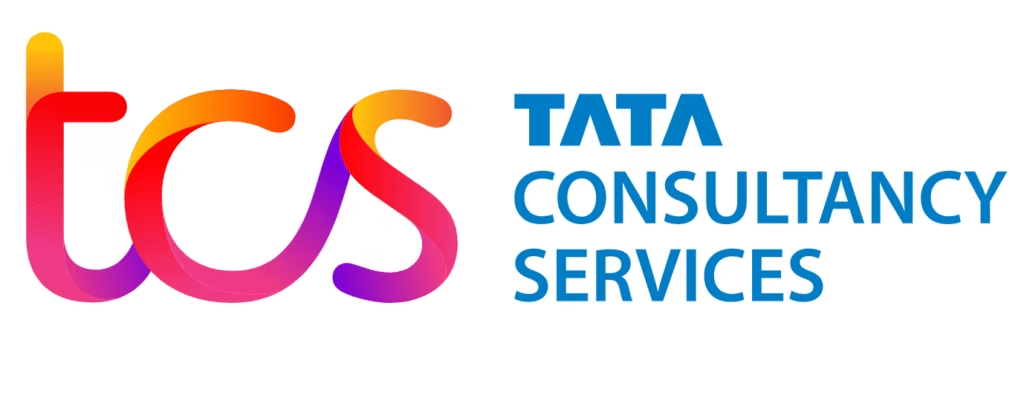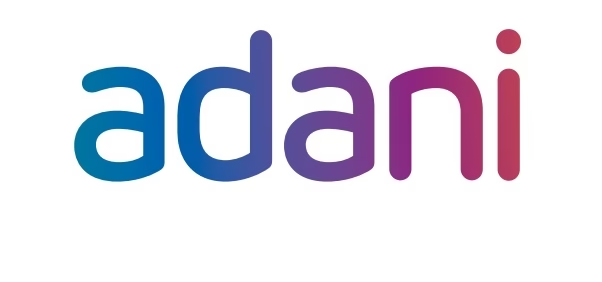TCS Stock Analysis (NSE & BSE): A Deep Dive for Investors in 2025
Introduction: Why TCS Matters in the Indian Stock Market
Tata Consultancy Services (TCS) is not just another stock on the NSE and BSE-it’s the crown jewel of India’s IT sector and a bellwether for the broader market. With a market capitalization of over ₹12.4 lakh crore, TCS is a global IT powerhouse, serving clients in more than 50 countries and employing nearly half a million professionals. For investors, TCS is a blend of stability, innovation, and long-term value, making it a core holding in countless portfolios.
Fundamental Analysis of TCS
Business Model & Revenue Streams: The Digital Backbone
Imagine TCS as the digital architect behind some of the world’s largest banks, retailers, and governments. Its business model is built on providing IT services, consulting, and business solutions that help clients adapt, grow, and innovate. Revenue streams include:
- IT Services: Application development, cloud migration, cybersecurity, and maintenance.
- Consulting: Business transformation, digital strategy, and process optimization.
- Digital & Enterprise Solutions: AI, IoT, analytics, and automation.
- Industry Verticals: BFSI (Banking, Financial Services, Insurance), Retail, Manufacturing, Energy, and more.
TCS’s strength lies in its ability to secure long-term contracts and recurring revenue, which smooths out the bumps of economic cycles.
Recent Financial Performance: Reading the Numbers
Let’s break down the latest numbers in a way that makes sense for investors:
- FY25 Revenue: ₹2,59,286 crore (up 6.0% YoY)
- Net Profit (FY25): ₹48,553 crore
- Operating Margin: 24.3%
- Net Margin: 19%
- Free Cash Flow: ₹46,400 crore (up 4.9% YoY)
- Total Contract Value (TCV): $39.4 billion for FY25, with Q4 TCV at $12.2 billion
- EPS (FY25): ₹134.2
Quarterly snapshot (Q4 FY25):
- Revenue: ₹65,507 crore
- Net Profit: ₹12,224 crore
- Net Margin: 19%
Shareholding (Dec 2024):
- Promoters: 71.8%
- Institutional Investors: 23.5%
- FIIs: 12.8%
- Insurance: 5.8%10
Key Financial Ratios: What Do They Tell Us?
| Ratio | Value (2025) | What It Means for Investors |
|---|---|---|
| P/E Ratio | 25.7 | Reasonable for a blue-chip IT leader |
| ROE | 50.3–52.4% | Exceptional capital efficiency |
| Debt/Equity | ~0.01 | Virtually debt-free, very low financial risk |
| Dividend Yield | ~1.8% | Steady income, strong payout tradition |
| Price/Book | 13.05 | Reflects premium for quality and growth |
TCS’s financials are a masterclass in stability: high margins, strong cash flows, and minimal debt.
Growth Drivers, Risks & Industry Trends: The Story Behind the Numbers
Growth Drivers
- Digital Transformation: As companies race to digitize, TCS’s expertise in AI, cloud, and enterprise solutions is in high demand.
- Global Reach: With a presence in every major market, TCS can tap into growth wherever it happens.
- AI and Automation: TCS is investing heavily in next-gen tech, positioning itself for the future.
- Strong Order Book: A robust pipeline of deals ($39.4 billion in FY25) provides revenue visibility.
Risks
- Macroeconomic Uncertainty: Global slowdowns or geopolitical tensions can delay client spending.
- Currency Fluctuations: With a large share of revenue from overseas, forex volatility can impact profits.
- Competition: Both global giants (like Accenture) and nimble startups are vying for market share.
Industry Trends
- Shift to AI & Cloud: Clients are prioritizing automation and digital transformation.
- Cost Optimization: Enterprises are cautious with discretionary IT spending amid global uncertainty.
- Sustainability: ESG (Environmental, Social, Governance) is becoming a key differentiator.
SWOT Analysis: TCS at a Glance
| Strengths | Weaknesses |
|---|---|
| Industry-leading margins and ROE | Slower growth in mature markets |
| Global brand and client relationships | High dependence on large clients |
| Robust order book and cash flows | Revenue sensitivity to macro trends |
| Opportunities | Threats |
|---|---|
| AI, cloud, and digital transformation | Currency and regulatory risks |
| Expansion in emerging markets | Intense global competition |
| Large deal wins and new verticals | Margin pressure from wage hikes |
Technical Analysis: TCS Share Price Trends and Levels
Recent Price Action & Key Levels
- Current Price (May 9, 2025): ₹3,440.30 (NSE/BSE)
- 52-Week Range: ₹3,056.05 (low) – ₹4,592.25 (high)
- 1-Month Return: +6.23%
- 3-Month Return: -14.57%
- 1-Year Return: -12.91%
- 5-Year Return: +78.21%
After peaking above ₹4,500, TCS has corrected sharply, mirroring global IT sector volatility. The stock is currently consolidating near ₹3,400–₹3,450, with a sideways trend in recent sessions.
Support & Resistance Levels
- Immediate Support: ₹3,256, then ₹3,056
- Immediate Resistance: ₹3,575, then ₹4,086 and ₹4,495
If TCS holds above ₹3,256, a bounce toward ₹3,575 is possible. A break below ₹3,256 could see further downside.
Technical Indicators Explained
- RSI (Relative Strength Index): Likely in the neutral-to-oversold range after recent corrections, suggesting the stock may be near a technical bottom.
- MACD (Moving Average Convergence Divergence): Bearish to neutral, indicating caution.
- Moving Averages: Trading below both 50-day and 200-day moving averages, showing a bearish bias in the short term.
Friendly Tip: For long-term investors, these corrections often present opportunities to accumulate quality stocks like TCS at reasonable valuations.
Entry & Exit Points
- Potential Entry: Near ₹3,300–₹3,400 if support holds and you see signs of reversal (like a bounce in RSI).
- Potential Exit/Profit Booking: Near ₹3,575–₹4,086, or if the stock fails to break resistance.
Global Ratings & Latest Updates
What Are Global Analysts Saying?
- Goldman Sachs (March 2025): Maintains a “Buy” rating on TCS, but has cut the target price to ₹4,230 due to macro uncertainty in the US, TCS’s largest market. The firm expects just 4% revenue growth for the Indian IT sector in FY26, down from previous forecasts.
- ICICI Securities (April 2025): Rates TCS as “ADD” with a target price of ₹3,680, citing TCS’s industry leadership and resilience despite muted growth in Q4 FY25.
- Refinitiv Consensus (May 2025): Out of 40 analysts, 29 recommend “Buy” or “Strong Buy,” 8 “Hold,” and only 3 “Sell” or “Strong Sell”.
- INDmoney & S&P Global: Average target price of ₹3,855.89, with a high estimate of ₹5,230 and a low of ₹3,000.
Management & Industry Recognition
- TCS was ranked a Leader in 25 competitive assessments by leading research firms in Q4 FY25.
- The company crossed the $30 billion revenue milestone, reinforcing its status as a global IT leader.
Share Price Targets: 2027–2030
| Year | First Half Target | Second Half Target |
|---|---|---|
| 2027 | ₹4,950–₹5,050 | ₹5,075–₹5,110 |
| 2028 | ₹4,995–₹4,850 | ₹4,875–₹4,925 |
| 2029 | ₹4,950–₹5,000 | ₹5,020–₹5,125 |
| 2030 | ₹5,150–₹5,225 | ₹5,250–₹5,325 |
These targets reflect both analyst consensus and market expectations, factoring in current macro conditions and TCS’s growth trajectory.
Investment Recommendation: What Should Investors Do?
Friendly, Actionable Advice
Hold/Accumulate on Dips:
TCS remains a blue-chip stock with a global footprint, robust order book, and industry-leading margins. While the recent correction reflects sector-wide caution, TCS’s fundamentals and leadership position make it a solid long-term bet. If you’re already invested, hold tight and consider adding more if the price dips closer to ₹3,300, provided the broader market remains stable.
Key Catalysts to Watch
- Large Deal Wins: New contracts, especially in AI and cloud, could spark a rally.
- US/Europe Macroeconomic Trends: Positive signals from major markets will boost sentiment.
- Quarterly Results: Watch for margin improvement and management commentary on deal pipelines.
Risks to Monitor
- Prolonged Global Slowdown: Could delay client spending and impact revenue growth.
- Currency Volatility: A strong rupee can hurt export earnings.
- Rising Wage Costs: Margin pressure from talent retention and wage hikes.
Conclusion: The TCS Investment Story in 2025
TCS stands as a pillar of strength in India’s IT sector and a favorite among NSE and BSE investors. Its business model-anchored in digital transformation, global reach, and innovation-ensures resilience even in challenging times. While the stock has faced headwinds, its fundamentals remain rock-solid, and analyst consensus points to upside potential as macro clouds clear.
In simple terms: If you’re looking for a stock that combines stability, growth, and a proven track record, TCS deserves a spot on your watchlist or in your long-term portfolio. As always, keep an eye on quarterly results, global cues, and use corrections as opportunities to build your position in this IT giant.
If you have more questions or want to discuss TCS further, reach out or keep following the latest stock analysis and updates-smart investing is all about staying curious and informed!
Keywords: TCS stock analysis, TCS share price, Tata Consultancy Services, TCS NSE, TCS BSE, TCS financial performance, TCS technical analysis, TCS investment recommendation, Indian IT stocks, blue chip stocks India, TCS quarterly results, TCS fundamentals, TCS SWOT analysis, TCS price targets, TCS global ratings, TCS dividend, TCS earnings, best IT stocks India, TCS buy or sell, TCS share forecast, TCS stock review
Note: We are not financial advisors or certified investment professionals. The information and analysis provided here are for educational and informational purposes only and should not be considered as financial advice or a recommendation to buy or sell any stock. Please consult with a qualified financial advisor and do your own research before making any investment decisions.
Disclaimer: Transparency is important to us! This blog post was generated with the help of an AI writing tool. Our team has carefully reviewed and fact-checked the content to ensure it meets our standards for accuracy and helpfulness. We believe in the power of AI to enhance content creation, but human oversight is essential.





